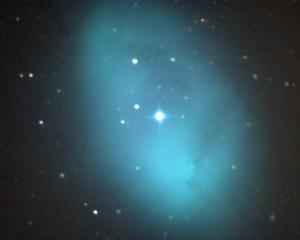
With the launch of the Love Food Hate Waste NZ website this month, cooking and eating food waste has been all over the media, says Gina Dempster.
It's easy to dismiss food waste as a small household issue - a banana skin here and a slice of bread there - but food waste embodies a massive waste of resources world-wide.
It's estimated that about a third of the food grown globally is wasted, even though every year 3.1 million children under 5 die from poor nutrition.
Those two facts are so contradictory that I find it really difficult to keep them both in my head at the same time.
If you were an alien informed of those two facts as you arrived on Earth, you could draw some interesting conclusions about the human race:
• Humans are pretty bad at sharing.
• They think on an individual scale, not a planetary one.
• They can put up with some damn stupid situations for a very long time.
The scale of resources that is used to produce food that will be thrown out is mind-boggling.
Twenty-five percent of all fresh water consumed is used to produce food that is thrown out. Three hundred million barrels of oil is also used to produce that food.
If food waste was a country, it would be the third-largest producer of carbon emissions behind China and the US.
It's such a big problem that you wonder whether our individual actions can really make a difference. After all, did clearing our plates when we were kids really help the starving children in Africa?
But, as with combating climate change, apathy is going to get us nowhere.
The first step towards creating change is when individuals care and make a change in their own lives and in their own communities. If you don't like the status quo, now is the moment to do something about it.
The great thing about food is that it's fun and it brings people together.
Food is to be shared and celebrated. Food keeps us alive. All we need to do to make a big change is to value food and recognise that it is too precious to be wasted. Once we can (re)create a culture in which food is valued, then the distribution system will follow.
Already in New Zealand, supermarkets are working with food distribution networks to send food which would not be sold to people who need it.
Around the world, campaigners are fighting against the perception that fruit and vegetables have to be perfect to be eaten.
There's a long way to go, but change has started.
Love Food Hate Waste NZ is focusing on what households can do to reduce the food they waste. On average, each Kiwi household throws out three shopping trolleys full of food every year.
Here in Otago, it's a busy month, with lots of Love Food Hate Waste events focusing on celebrating food and finding delicious ways to enjoy rejected or discarded food.
Alexandra recently held Otago's first Disco Soup.
Disco soups are sweeping the world, and even if you don't know what one is, the name sounds so fun you want to go along.
Discarded food was donated by businesses and made into soup by disco food fans bopping along to DJ Pea.
The soup warmed up volunteers at a community planting mulchathon a couple of days later.
Co-organiser Anna Robinson, from REAP, said conversations were at the heart of the disco soup experience; whether it was with the businesses who donated the food about how they deal with food waste, or between the disco soup participants as they washed, chopped, peeled and prepped.
For the record, there were three varieties of soup made: random vegetable, random vegetable and chicken and random vegetable and beef. And they were all delicious, especially on a chilly winter morning.
In Dunedin, fourth-year University of Otago food science students created a food waste banquet for their classmates. You had to work for your free meal, as the cooking was done by the 80 students who came along.
As well as using commonly discarded parts of food, the organisers foraged, and retrieved food from sponsor Veggie Boys' pig bin. Offal and banana peel cake were on the menu and, surprisingly, both were a hit on the night.
Organisers had been inspired by Alison Lambert (Dunedin Farmers Market demonstration chef) and Victoria Madison (Revival Food Company), so they were asked to come along and share their food waste secrets.
Co-organiser Rosa Yip said going to university was a perfect time to learn about how to use up food instead of wasting it.
"We need to learn such skills as early as possible before we turn wasting foods into a habit.''
If you don't get a chance to make it to an event this month, why not commit to doing one thing differently?
Change can be as simple as committing to making a shopping list, eating up what's in the fridge before you go shopping again, sharing garden produce with neighbours or a foodbank or using your freezer more.
And if (like me this week), you forget to take your shopping list and end up with six broccoli heads in the fridge, the Love Food Hate Waste NZ website has recipes to help use them up. Broccoli soup anyone?
- Gina Dempster is communications officer at Wanaka Wastebusters. Each week in this column, one of a panel of writers addresses issues of sustainability.
Events
Love Food Hate Waste events coming up
• Judith Cullen Love Food Hate Waste, Cook Up: a mystery box cooking demo
Thursday June 30 (tickets sold out)
Dunedin food writer Judith Cullen is taking a root-to-stem approach in this food-waste-based cooking demonstration. Food will be sourced from Food Share, the Dunedin charity that distributes 50,000 meals of rescued food a month. Some of the top-10 most commonly wasted foods will be included in the menu: bread, leftovers, potatoes, apples, chicken, bananas, lettuce, oranges, pumpkin and carrots.
• Otago Farmers Market
Saturday July 2
SuperGrans, Dunedin City Council staff and demonstration chef Alison Lambert will share ways to reduce your food waste at Otago Farmers Market. Jump on the smoothie bike at the Love Food Hate Waste NZ stall, or watch Alison turn food destined for pig bins or compost into delicious treats. Don't forget to try one of Revival Food Company's compost cookies and find out about the other delicious products Victoria Madison is making from waste ingredients.
• Wastebusters Fairytale Food
Tuesday July 5 at Wanaka Wastebusters
Fedeli chef Evelyn Vallillee weaves a magic spell to transform wilted and unwanted food from the back of the fridge into the stars of your meal. The drop-in informal workshop will include two free cooking demonstrations, tasty samples and healthy recipes focusing on food that is commonly wasted, including those perennial Cinderellas of the table, quince and Jerusalem artichokes.












